The time has finally come and you're dreading the complications of starting your baby on solid food. Don't worry, at Sinchies, we've got you covered! Here's a step-by-step guide to help you get started.
Is My Baby Ready For Solids?
When your newborn reaches around six months of age, it's time to start looking for the signs that they are ready to eat solid food. These include:
- Sitting up with support
- Showing interest in what you're eating (staring at you chewing, reaching for your food, trying to put it in their mouth)
- The ability to control head and neck movements
What time of day should I feed my baby solids?
Start with a time of day that works best for you and your baby's routine. It's a good idea to introduce solids at a time when you're both relaxed and not in a rush. This could be after a milk feed or in the morning when your baby is well-rested and calm.
How frequently should I introduce solid foods?
We recommend that you start with one feed per day, then gradually increase to two and three as your baby's appetite and tolerance for solid food grows. Don't worry if your baby doesn't eat much at first, as it can take time to adjust from the liquid food you can find in reusable food pouches for babies.
What foods should I start with?
The first foods to introduce should be soft, and easy to swallow. Remember, your baby may only have a few (if any) teeth when they start solids.
You can start with purees or soft mashes that you can store easily in reusable food pouches. Fruit and veg purees are simple to make, just steam or boil, mash or puree then allow to cool.
We also want to be conscious about giving iron-rich foods early on. That’s because breast milk and formula don’t quite have the iron baby’s need at this age.
Iron-rich foods include pureed meats, fish, poultry and tofu. Here's a checklist of other easy to chew baby foods to get you started:
- Iron-fortified baby cereal
- Pureed sweet potato, pumpkin or carrots
- Pureed apple, pear or banana
- Pureed avocado
- Soft cooked broccoli or cauliflower
Tips and tricks for introducing solid foods
Use a small spoon or weaning spoon and let your baby take the lead. If they still refuse to eat after multiple attempts, you can start off with food that has a more runny consistency and gradually build up solidity in its texture until your baby gets used to it.
Offer a variety of textures, from purees to mashed to finger foods but remember not to add salt, sugar or honey to your baby's food as they can contain harmful bacteria to children under one year of age.
If you can, introduce one food at a time, waiting a few days before introducing another to check for allergies.
The Australian government recommends introducing solids around six months of age. However, you can decide for yourself if your baby shows signs of readiness.
Common Concerns and How to Overcome Them
Choking
Avoid small, hard or round foods like nuts, popcorn, grapes, and raw carrots. Or stringy foods like celery, it is best to start with purees. But remember, gagging is different to choking. If a baby gags that can be a good thing as they learn to clear their throat and mouth to swallow. When you do start to introduce food into small pieces - supervise your baby at all times through the meal.
Allergies
We recommend that you should introduce allergenic foods as soon as your baby starts solids. Companies like Taste Bubs can safely introduce your baby to food allergens, with easy to eat meals.
If you have a family history of allergies, there should be no reason you shouldn’t start solids or introduce allergens like the rest of the population. It’s extra important that your child reduces their risk with early introduction (because it could be likely that they have inherited an increased risk which you will need to be extra cautious for).
Don't force your baby to eat, and don't worry if they don't eat much at first. Keep offering a variety of foods and let your baby explore.
Mess
Embrace the mess! Offer a bib and a high chair for your baby or add a less mess lid if you are using food pouches.
Starting solids can be an exciting time for you and your baby. Remember to go at your baby's pace and enjoy the journey. Before you know it, your baby will be enjoying a wide variety of solid foods!
Contact us if you have any questions, we are always happy to help parents who need a hand.

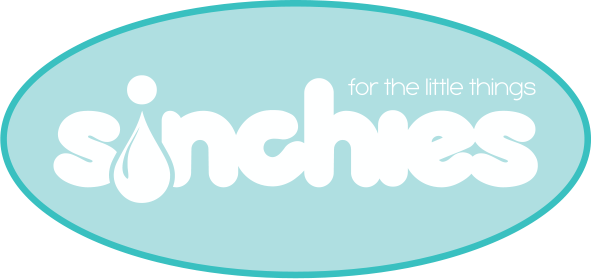
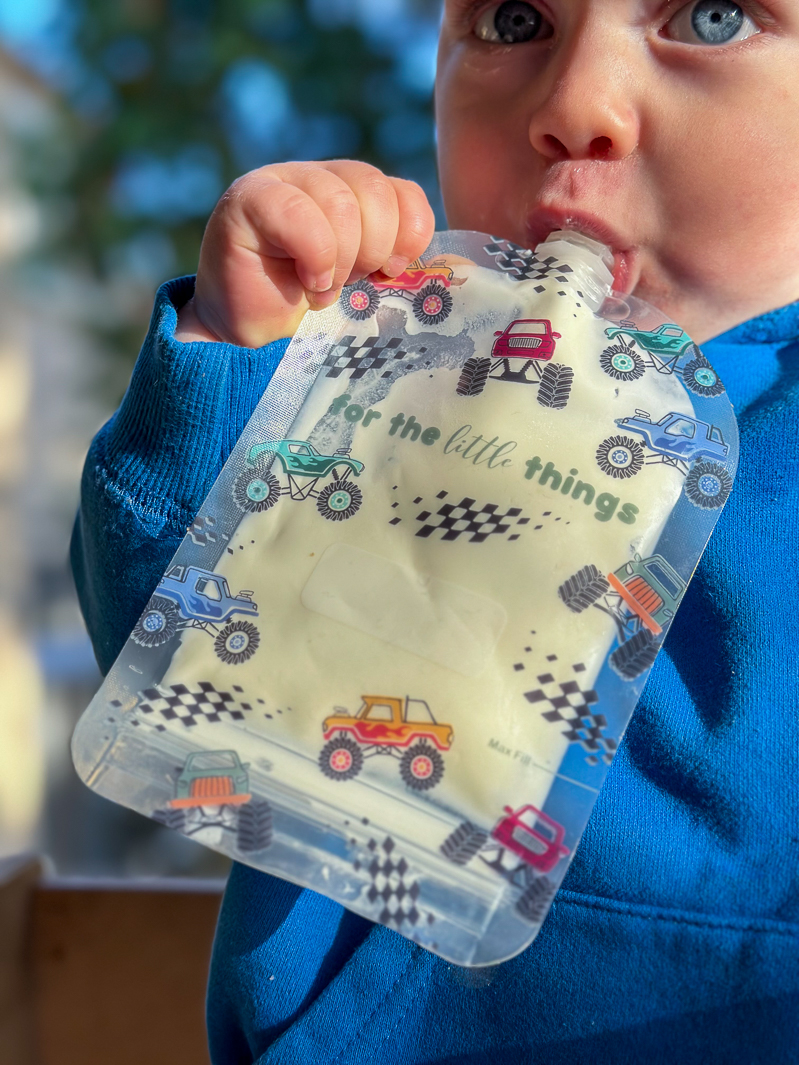

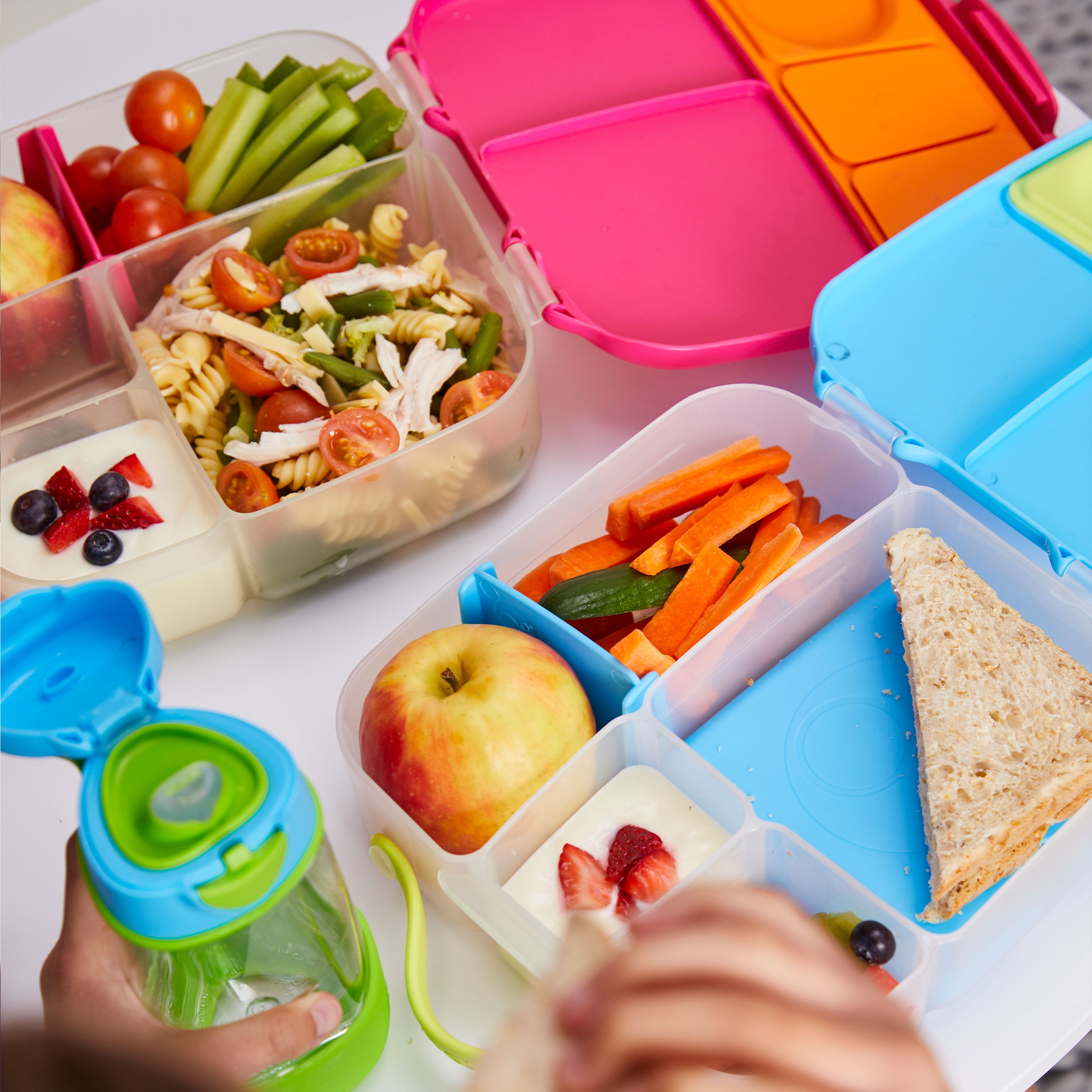

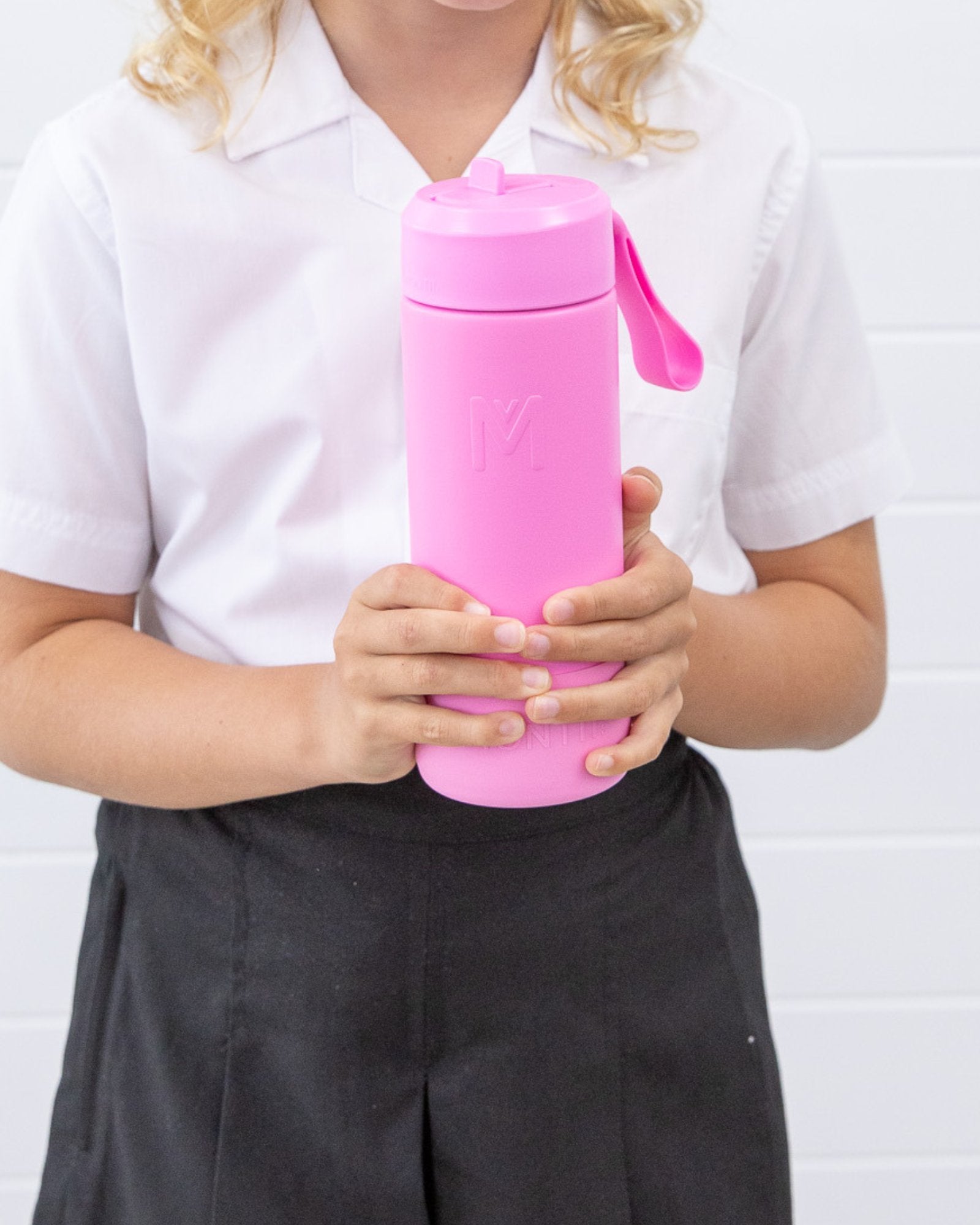

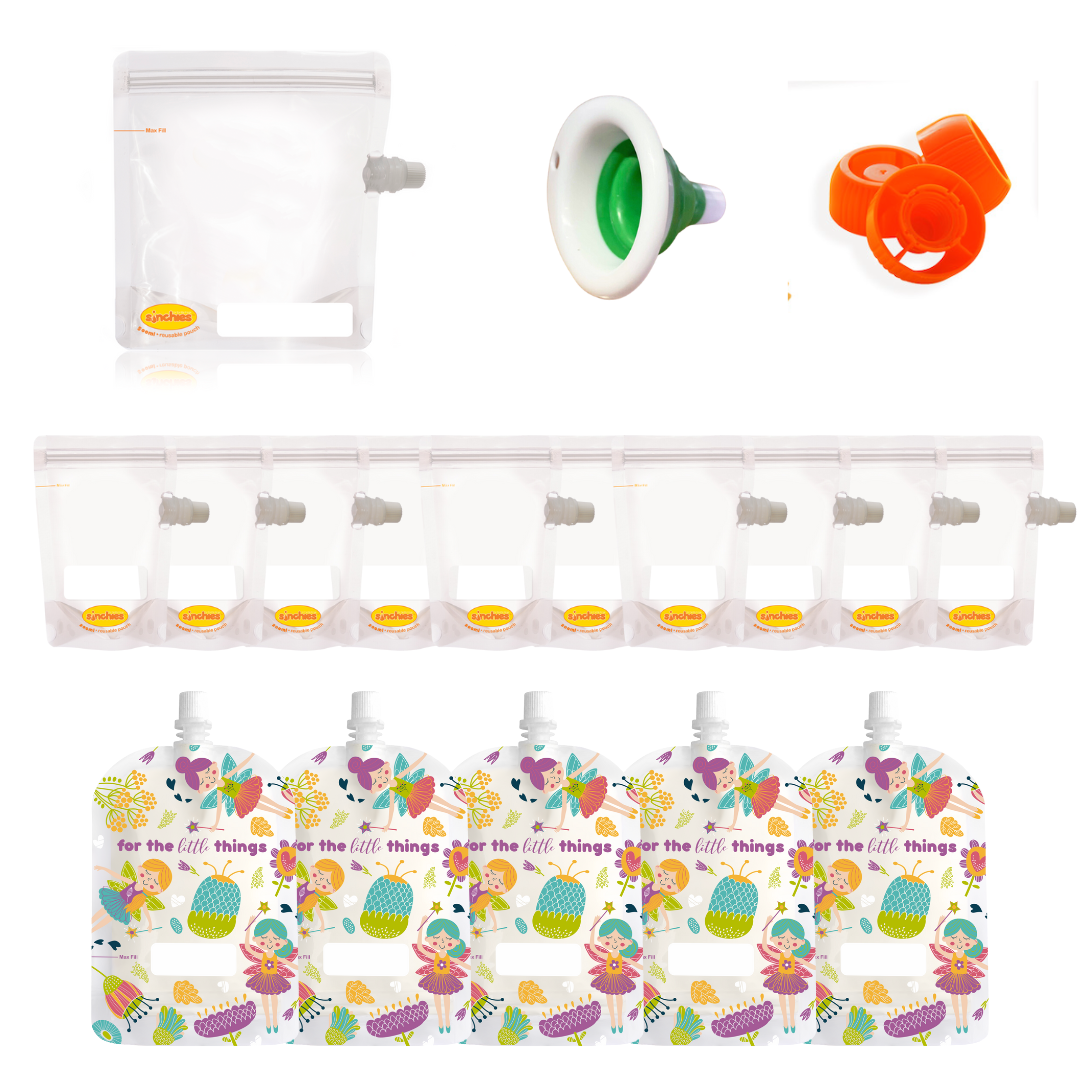
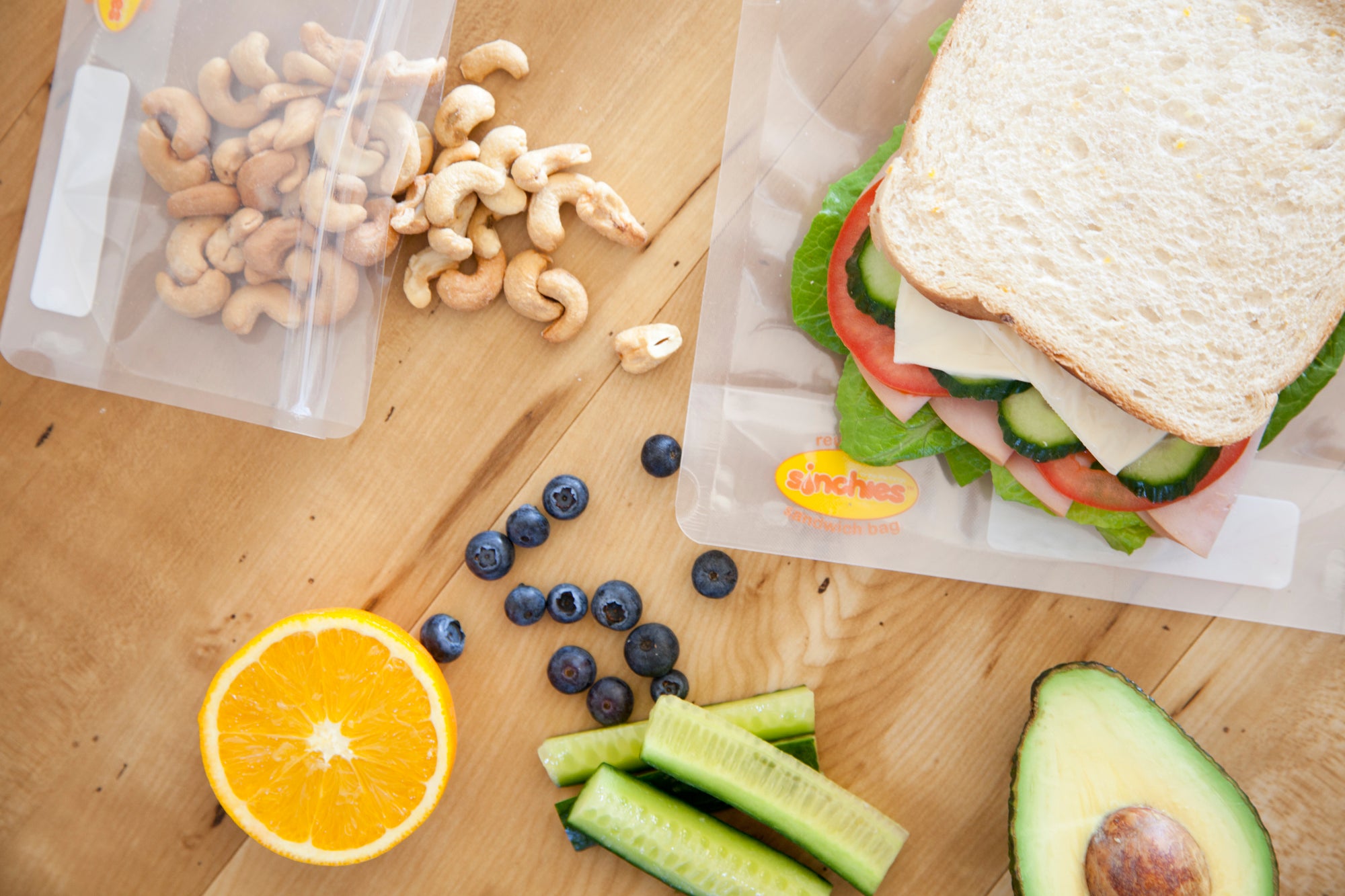
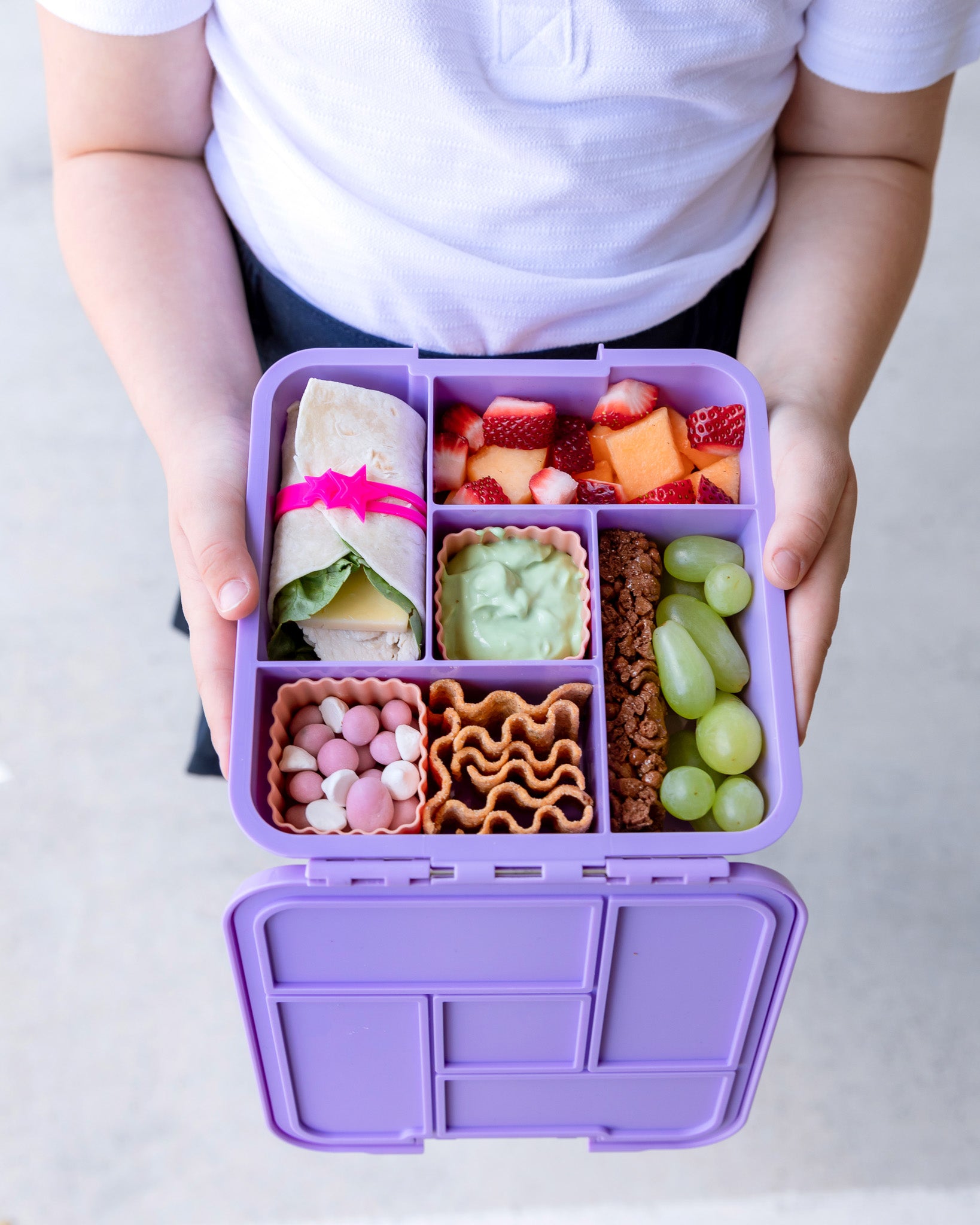























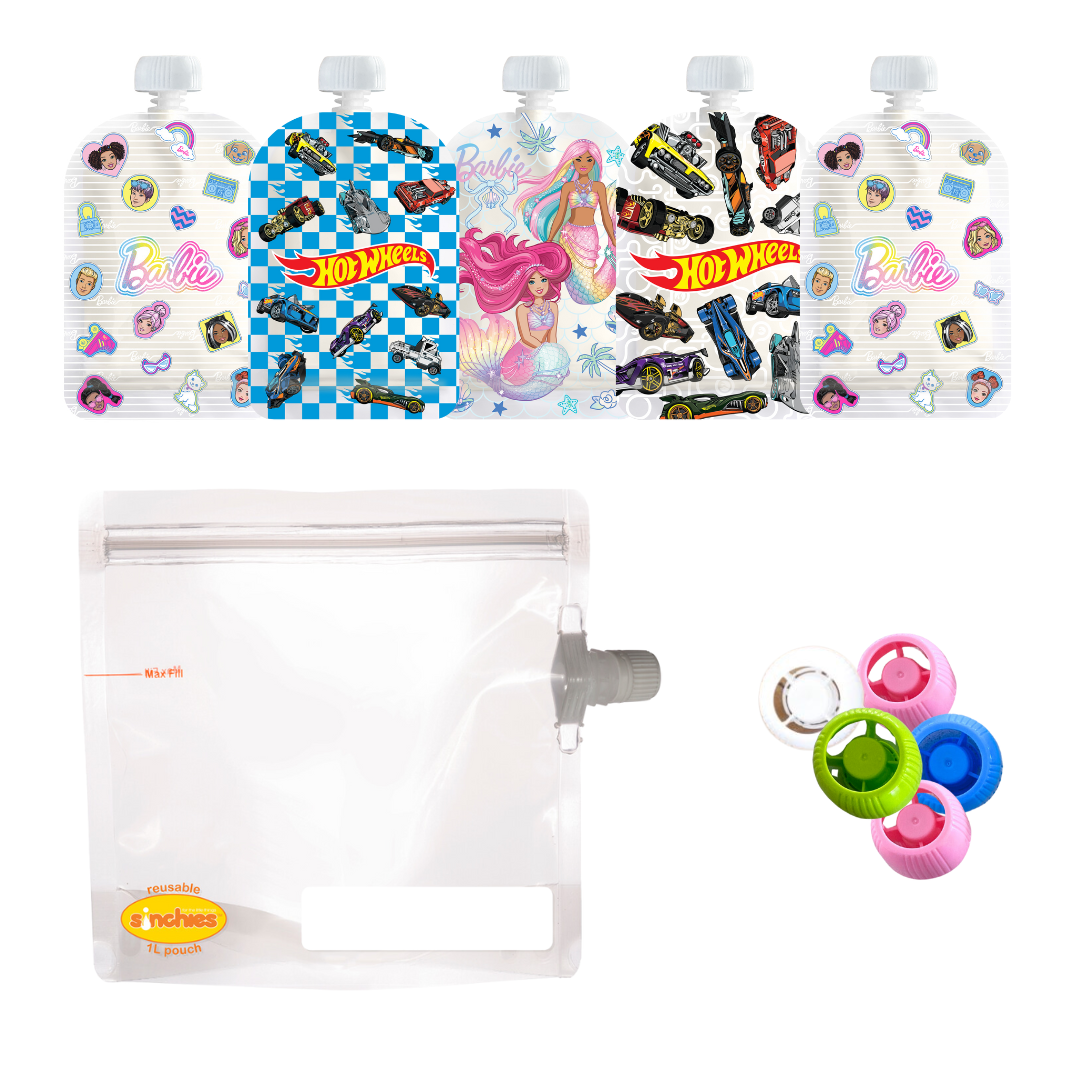
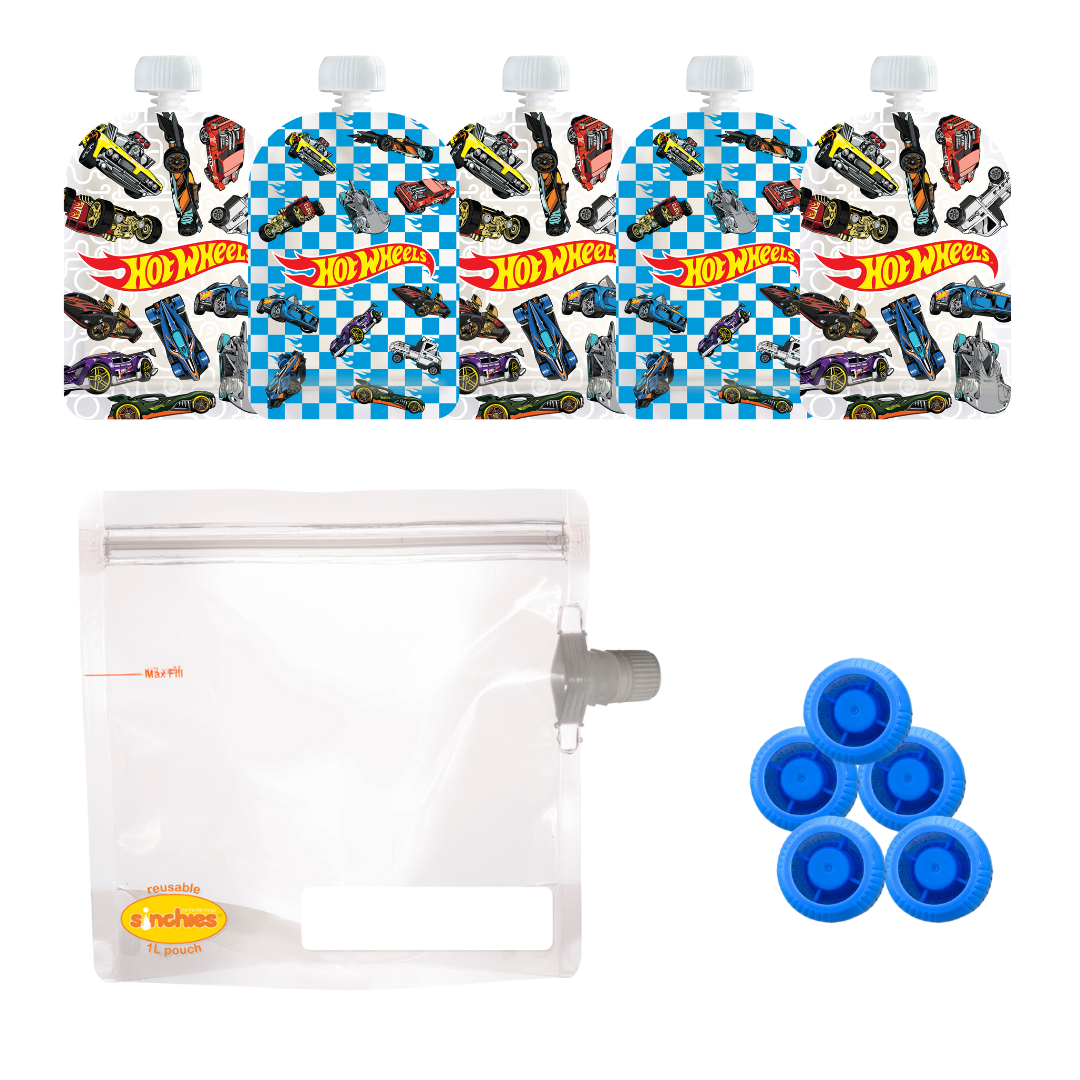
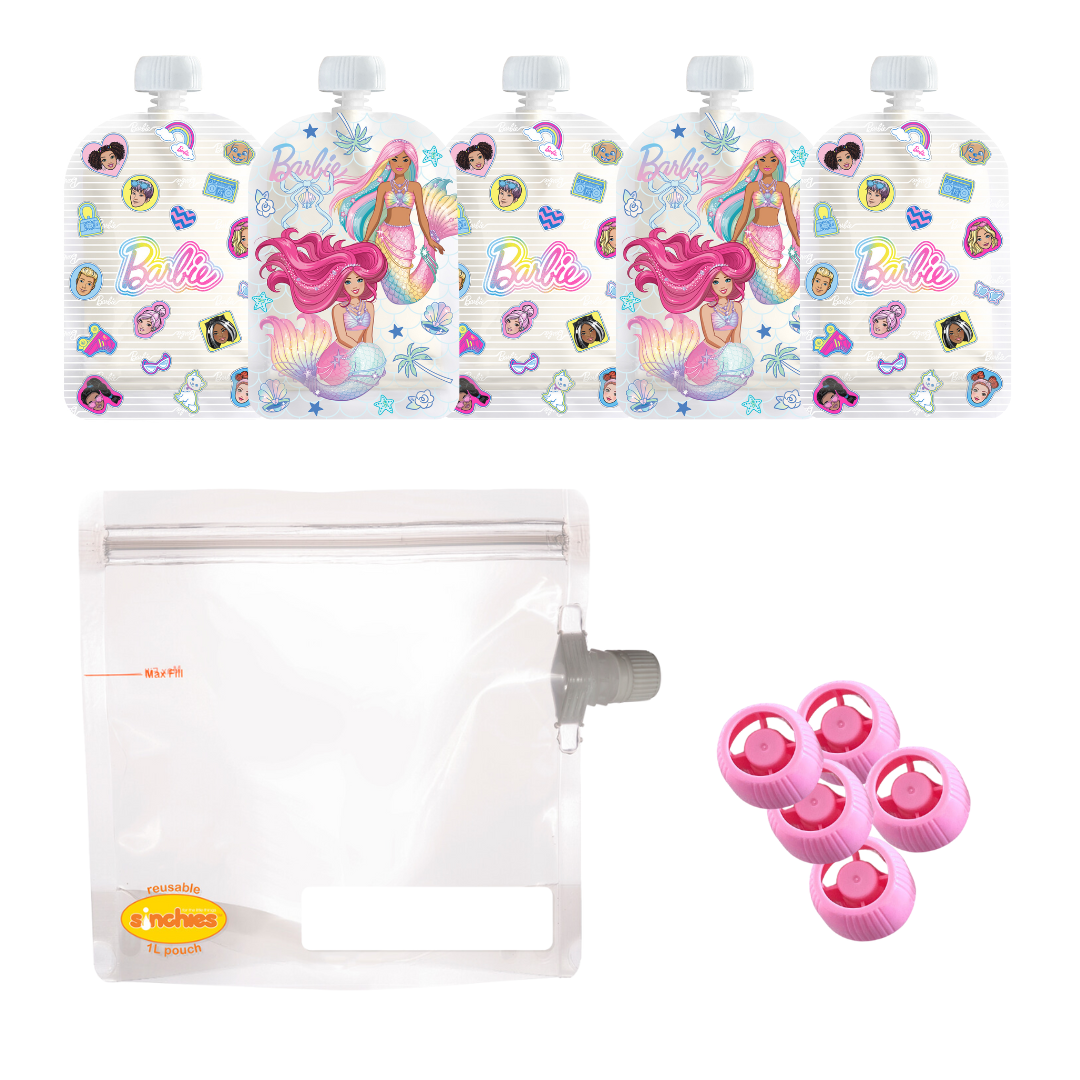


















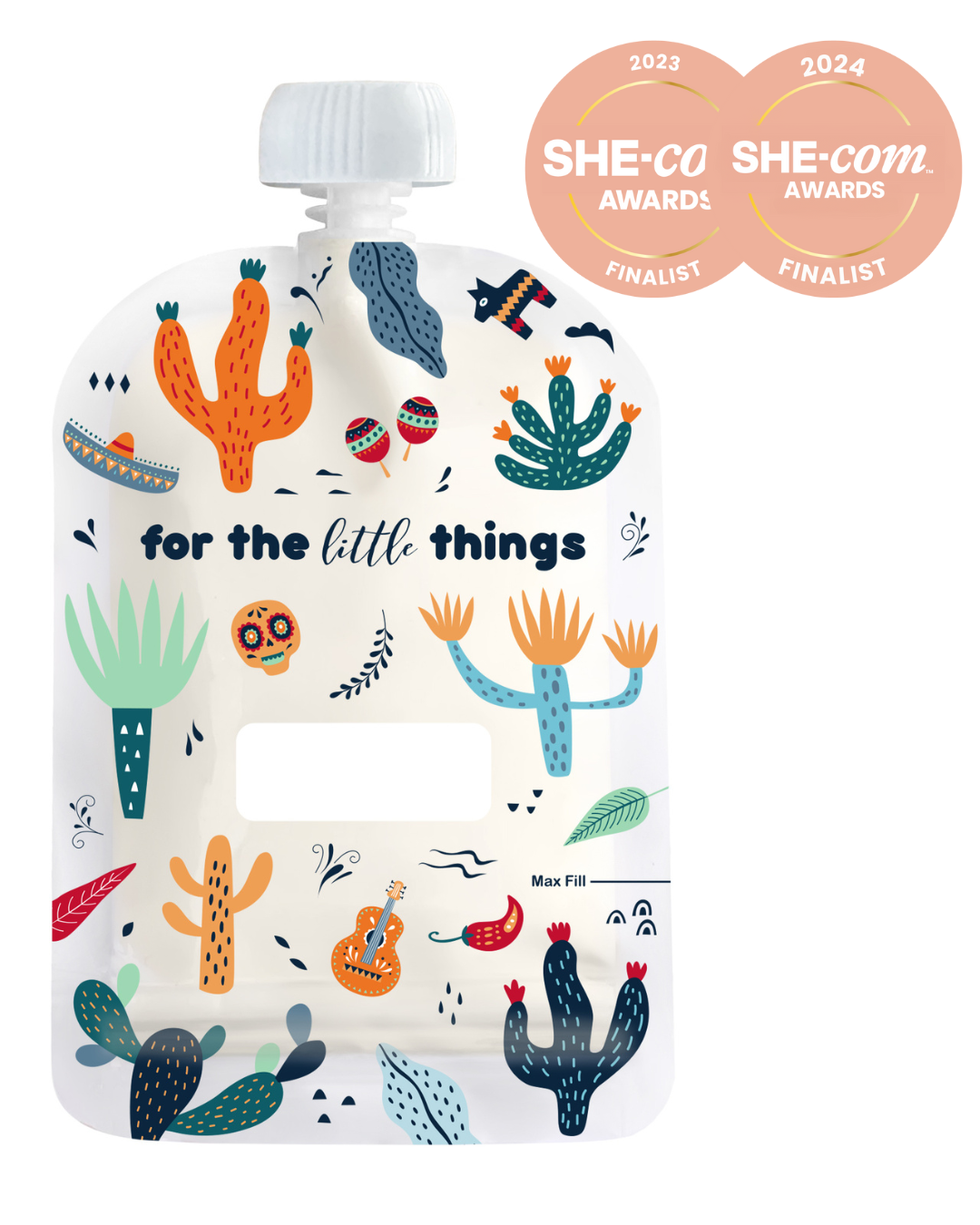
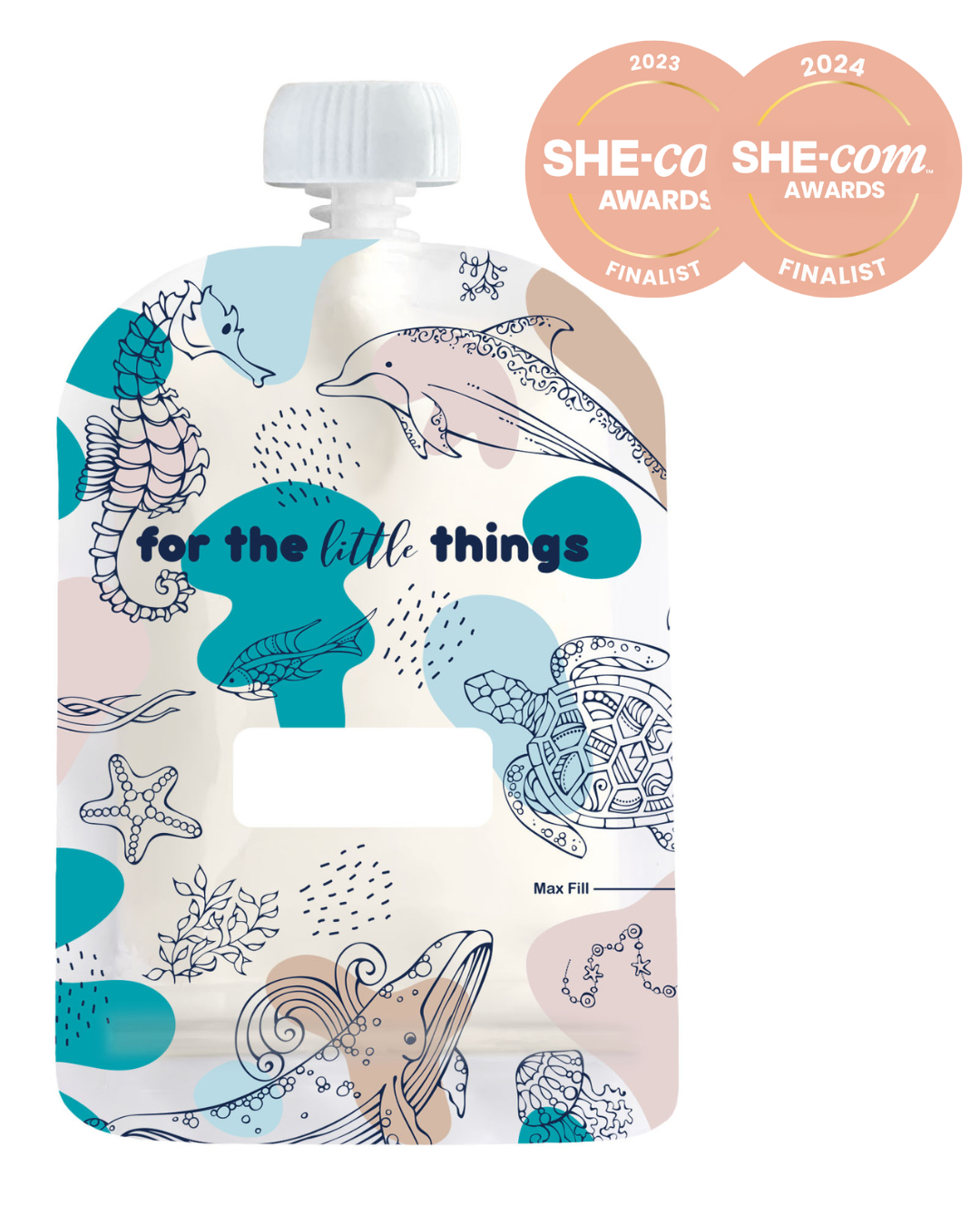











Leave a comment